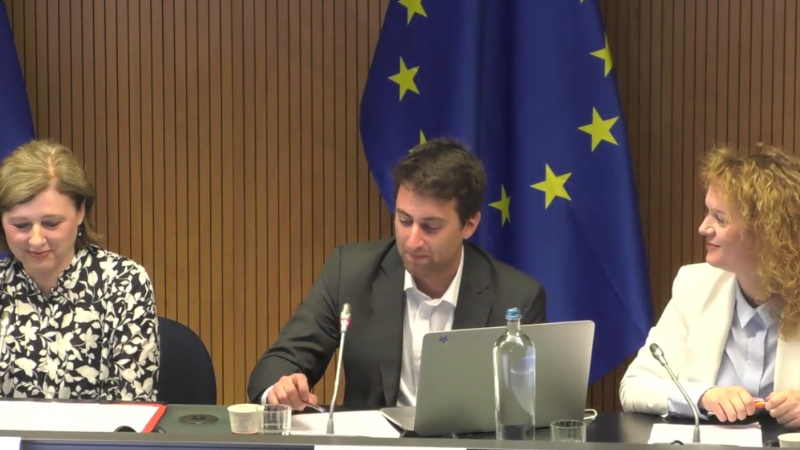The EU Commission has officially presented its historic anti-SLAPP directive and recommendation package, a set of laws and proposals which will protect the right to public participation and media freedom.
The package, informally known as ‘Daphne’s law’ as a tribute to slain journalist Daphne Caruana Galizia, will allow courts to speedily dismiss claims which are “manifestly unfounded”, delineate which specific elements constitute a SLAPP case, and provide courts with the power to issue dissuasive sanctions against abusive claimants.
Vera Jourová, the vice-president of the EU Commission for values and transparency, presented the proposals in collaboration with the Coalition Against SLAPPs in Europe (CASE), a coalition featuring over 200 organisations from across the world.
“Our research has shown clearly that member states and their courts are not well-equipped to deal with this type of abusive lawsuits. They may have some general safeguards, but these do not always help,” Jourová said in her opening remarks.
Malta in particular is the leading country in the EU for SLAPP cases per capita – in January, The Shift reported how CASE’s research showed that Malta had a rate of 3 SLAPP cases per 100,000 people, followed by Slovenia at 1.9 and Croatia at 0.6.
In its report, CASE defined a SLAPP as legal action normally brought by a private party or a State actor in their own capacity which mainly relies on defamation and slander legislation in the EU’s member states to deter public participation.
“Public participation is a broad term that can encompass any effort to engage in issues of societal or political significance: journalism, advocacy, whistle-blowing, peaceful protests or boycotts, activism or simply speaking up against the abuse of power,” the report reads.
At a press briefing held on Thursday, the vice-president spoke of the risks that accompany a failure to introduce a level of protection at EU level for all member states, arguing that “different regimes will only open new avenues for forum shopping and procedural abuse” should there be a lack of implementation across member states.
“Our directive puts safeguards against SLAPPs on the table. We designed them with the aim of nipping SLAPPs in the bud and neutralising their harmful effect on public participation and on the exercise of human rights and fundamental freedoms,” Jourová added.
While the directive is a formalised law which sets a specific goal for member states to adhere to, the real challenge consists of getting member states to adopt the recommendations being proposed. Recommendations are non-binding and cannot be imposed on member states.
While the directive deals with cross-border SLAPP cases, the EU Commission cannot impose a similar framework on domestic cases within each member state, leaving it up to member states to adhere to the recommendation being proposed.
Speaking at the press briefing, Matthew Caruana Galizia, director of the Daphne Foundation, thanked the EU Commission and all the members of EU Parliament who participated in calling for such laws to be passed.
“The Commission’s proposal is the beginning of a new phase in our campaign as a family, and as members of the Coalition. We now need to focus on member states who need to implement the Commission’s measures as a minimum, to protect the public interest and to do justice to my mother’s sacrifice,” Caruana Galizia said.
The panel of speakers outlined how the package foresees the provision of funding for training of members of the judiciary as well as legal entities in order to better equip justice systems to handle SLAPP cases, legal aid and support for SLAPP targets and calls for the removal of criminal defamation laws which would be replaced by more tightly controlled civil laws.
“No member state must be left aside or have any excuse for not joining this process. Awareness among potential targets is also absolutely important: in the states were people are informed, they are demanding the fulfillment of their rights and they are not passive,” Jourová stated.
“It will be important in every single member state to provide structures to support and inform all potential targets of SLAPPs, and they should not be left alone when facing these attacks,” she added, referring to the package as a way to even out the “unequal fight” between wealthy litigants and civil defendants.














Applause outshines slapping always.
Daphne’s law – At least the European Commission did Daphne proud!